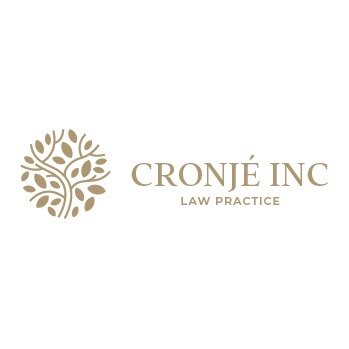Best Oil, Gas & Energy Lawyers in Windhoek
Share your needs with us, get contacted by law firms.
Free. Takes 2 min.
List of the best lawyers in Windhoek, Namibia
About Oil, Gas & Energy Law in Windhoek, Namibia
Windhoek, the capital city of Namibia, is a central hub for the country's oil, gas, and energy industries. Namibia's natural resource sector is expanding, with the potential for significant oil and gas reserves offshore and extensive renewable energy projects onshore. The legal landscape in this sector covers exploration, production, environmental concerns, and regulatory compliance. The government aims to harness these resources for economic growth while ensuring sustainability and equitable distribution of benefits.
Why You May Need a Lawyer
Legal assistance is often necessary in the oil, gas, and energy sectors due to the complex nature of agreements, regulations, and compliance requirements. Common situations include:
- Negotiating contracts for exploration and production.
- Ensuring compliance with national and international environmental standards.
- Navigating the regulatory frameworks governing licensing and permits.
- Resolving disputes over land use, royalties, or contractual breaches.
- Advising on mergers, acquisitions, and investments in energy projects.
Local Laws Overview
Namibia's oil, gas, and energy sectors are governed by a combination of constitutional provisions, statutory laws, and regulations. Key aspects include:
- Petroleum (Exploration and Production) Act: Governs the exploration and production of petroleum resources, stipulating licensing and operational requirements.
- Environmental Management Act: Ensures that energy projects comply with national environmental impact assessments and management plans.
- Minerals (Prospecting and Mining) Act: Covers the exploration and exploitation of mineral resources, including related energy resources.
- Energy Policy: Outlines the national objectives for sustainable energy, focusing on renewable sources to diversify the energy mix.
- Investment Promotion Act: Provides regulations to facilitate foreign investments in Namibia's energy sector.
Frequently Asked Questions
What are the primary sources of energy in Namibia?
Namibia primarily relies on hydropower, imported electricity, and, increasingly, solar energy due to abundant sunlight.
Is there potential for oil and gas production in Namibia?
Yes, Namibia has significant offshore potential, particularly in the Orange Basin, which has attracted multinational exploratory interest.
What environmental protections are in place?
The Environmental Management Act requires comprehensive impact assessments and management plans for energy projects to mitigate environmental damage.
How does Namibia address renewable energy development?
Namibia's energy policy supports renewable energy, targeting increased solar and wind power generation and encouraging private sector investment.
What role does the government play in energy projects?
The government regulates the industry through various acts, and public entities often partner with private firms in energy projects.
How can foreign companies invest in Namibia’s energy sector?
Through the Investment Promotion Act, which outlines the procedures and incentives for foreign investment in the energy sector.
Are there local content requirements for foreign companies?
Yes, projects often require a level of local content to promote job creation and skills development within the country.
What taxes apply to oil and gas operations?
Namibia imposes various taxes, including royalties, income taxes, and specific levies pertinent to natural resource exploitation.
Do I need a license for small-scale renewable energy projects?
Yes, all energy generating projects require the appropriate licenses as regulated by the renewable energy policies and laws.
How is land acquisition for energy projects regulated?
Land acquisition is subject to the Land Reform Act and must consider local communities' rights and environmental considerations.
Additional Resources
If you're seeking legal advice or further information on the oil, gas, and energy sector in Windhoek, Namibia, consider consulting the following resources:
- Namibia Petroleum Corporation (NAMCOR): Oversees petroleum exploration and production activities.
- Ministry of Mines and Energy: Regulates mineral and energy sectors, providing guidelines and permits.
- Environmental Investment Fund of Namibia: Supports environmentally sustainable practices in the energy sector.
- Namibian Investment Centre: Offers resources and guidance for foreign investors in the energy industry.
- Legal Practitioners’ Council of Namibia: Provides information on registered legal practitioners specialized in energy law.
Next Steps
If you require legal assistance in the oil, gas, and energy sector, start by conducting thorough research on which aspect of the law your issue relates to. Engaging a lawyer with expertise in this field is crucial due to the sector's technical and regulatory complexities. You can obtain a list of practitioners from the Legal Practitioners’ Council of Namibia and schedule consultations to find a legal advisor best suited to your specific needs.For any contractual or regulatory matters, have all relevant documents and information organized and ready to discuss with legal counsel, ensuring a more efficient and effective advisory process.
Lawzana helps you find the best lawyers and law firms in Windhoek through a curated and pre-screened list of qualified legal professionals. Our platform offers rankings and detailed profiles of attorneys and law firms, allowing you to compare based on practice areas, including Oil, Gas & Energy, experience, and client feedback.
Each profile includes a description of the firm's areas of practice, client reviews, team members and partners, year of establishment, spoken languages, office locations, contact information, social media presence, and any published articles or resources. Most firms on our platform speak English and are experienced in both local and international legal matters.
Get a quote from top-rated law firms in Windhoek, Namibia — quickly, securely, and without unnecessary hassle.
Disclaimer:
The information provided on this page is for general informational purposes only and does not constitute legal advice. While we strive to ensure the accuracy and relevance of the content, legal information may change over time, and interpretations of the law can vary. You should always consult with a qualified legal professional for advice specific to your situation.
We disclaim all liability for actions taken or not taken based on the content of this page. If you believe any information is incorrect or outdated, please contact us, and we will review and update it where appropriate.















